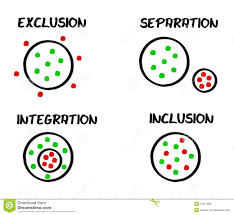 “Calling in” is a new term for me. During the 30 Days of Love project, I’ve learned several new things — vocabulary is only 1 piece of it.
“Calling in” is a new term for me. During the 30 Days of Love project, I’ve learned several new things — vocabulary is only 1 piece of it.
I had to go to the original article, after reading today’s prompt. Calling people out on racism, heterosexism, or just plain hatefulness is a calling for me (and yep, I said that on purpose). Still, from what I gather, reading Ngọc Loan Trần’s amazing piece on calling in, adding ‘calling in’ to our tool belt of strategies for intercultural dialogue is NOT a ‘get out of being called out free’ card for anyone.
If you’re a dumbass who seriously believes that others are in any way ‘less’ than you in your privileged state, I will call you out. I’ll begin by assuming you didn’t mean what you said, and ask you to clarify. But if you’re convinced that, say, women should obey their husbands, and stay home and make babies? I’m not supporting that with my polite silence.
What Ngọc Loan Trần offers us is, as he puts it, a ‘less disposable way of holding each other accountable.’ I have been guilty of utter cluelessness, when it comes to not ‘getting it.’ I’ve said things with NO malice intended — not even stereotyping — but still clueless as to how they sound. For instance: if you were outside of the US during the entire 80s, you probably don’t know that there ‘spear chucker’ was no longer a term for the extras in Cecil B. DeMille films (think: Moses and all those crowd scenes). You would be terminally embarrassed — and deeply, profoundly sorry — if someone took your clueless, dumbass remark as a racist slur. But to them it would be. No matter what you intended.
You almost certainly would call me on it, telling me in no uncertain terms that I was a racist. And then you’d probably get up and leave the conference room. At least, that’s what happened. The problem with that is that I had no idea what I’d done. I had to ask a friend (black), who cracked up, thinking of me using the term in a work meeting.
‘Calling in’ wouldn’t have worked in that specific instance, anyway, despite my clueless lack of intention. Neither party who left knew me well, so they had no reason to assume I wasn’t a racist yahoo. As far as they could tell, they were the victims of microagressions. So discarding me as another white idiot was certainly understandable. But say instead, that I’m clueless with a dear friend. Say that I don’t understand when she’s been insulted by a white woman. That I don’t ‘get it’. In that case, instead of ‘calling me out’ for my lack of understanding, my dear friend Sylvia took the time to explain what had transpired, what it meant, and how she saw (and felt) it. I’ve written about that elsewhere.
 Because Sylvia and I already were good friends, it was worth it to her to take the time to share her feelings, her thoughts on what had happened. She wanted me to ‘get’ what had happened. In other words? She called me IN — asked me to be one with her for a moment in her life, in her thoughts and feelings. Again, I quote Ngọc Loan Trần, who notes that “when we shut each other out we make clubs of people who are right and clubs of people who are wrong as if we are not more complex than that, as if we are all-knowing, as if we are perfect.”
Because Sylvia and I already were good friends, it was worth it to her to take the time to share her feelings, her thoughts on what had happened. She wanted me to ‘get’ what had happened. In other words? She called me IN — asked me to be one with her for a moment in her life, in her thoughts and feelings. Again, I quote Ngọc Loan Trần, who notes that “when we shut each other out we make clubs of people who are right and clubs of people who are wrong as if we are not more complex than that, as if we are all-knowing, as if we are perfect.”
I absolutely love this idea. I can’t thank 30 Days of Love or Ngọc Loan Trần enough for offering me something to go with my other compassion practices: tonglen, wrathful compassion, meditation, breathing. Certainly there is a time for calling out, as there is for wrathful compassion. But I am hoping that I can do more to dissolve barriers — to create unity — by learning how to call others in. Isn’t that what inclusion is all about?

